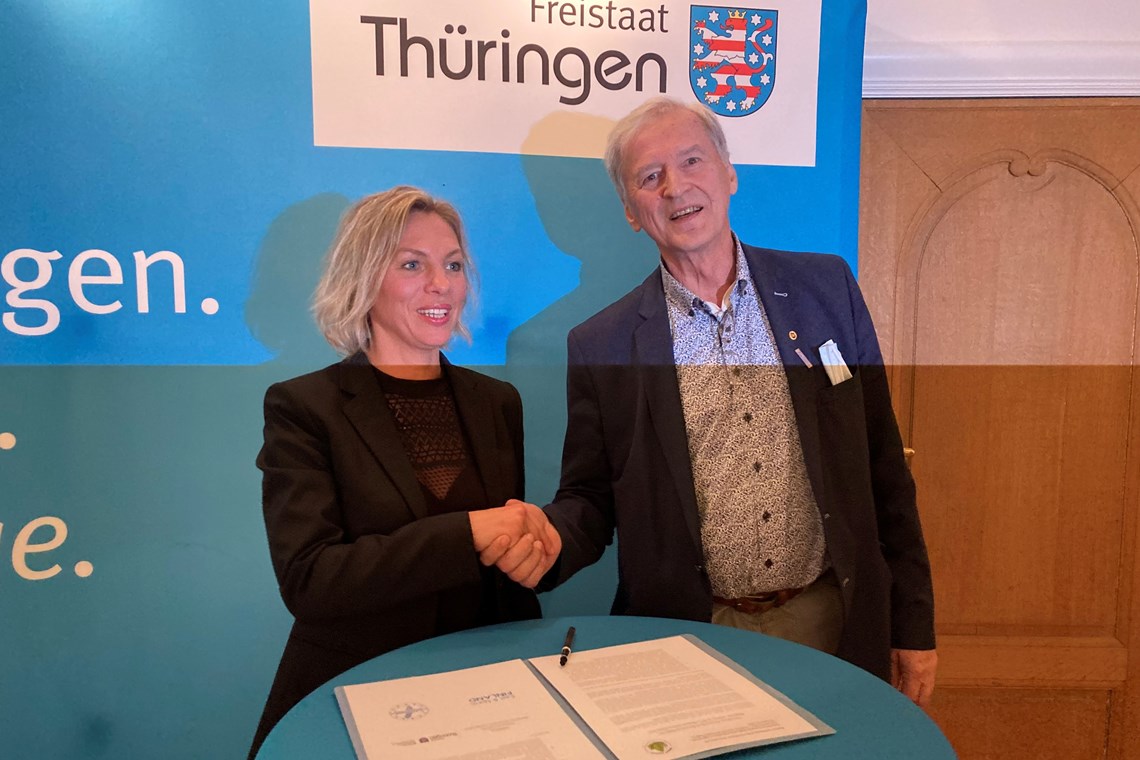Europaforum Northern Sweden takes a stand together with forest regions in southern Europe

On the of 28 September the political network Europaforum Northern Sweden, which North Sweden European Office is part of, signed a position paper put together by ERIAFF, a European network consisting of regional parties in agriculture, food and forest. The position pertains to the European Commission’s latest legislative proposal about land use, Nature restoration law.
In last couple of years, the European Commission has put forward a number of legislative proposals and strategies that affect forests, despite the fact that the forest is not within the jurisdiction of the EU.
These initiatives could have a huge impact on the forest industry and has caused great concern throughout the European Union, since the initiatives are often focused on conservation and doesn’t take the forest cycle into account enough.
The European Commission’s latest proposal that concerns forestry, the Nature restoration law, risks affecting the on-going absorption of co2 since there could be fewer trees growing and more old trees standing. This may also increase the risk of forest fires, not the least in central and southern Europe with an increased amount of dry and flammable fuel remaining in the forests, as well as the increased risk of insect attacks on aging and dry forests.
This also puts the profitability and jobs in the forest industry at risk.
The political network Europaforum Northern Sweden (EFNS), has therefore signed a position put together by ERIAFF, a European network of regional parties in agriculture, food and forest.
The position was ceremoniously signed on September 28 by the Thuringian minister for agriculture and transport, Susanna Karawanskij, The regional council of Norrbotten and board member in EFNS, Nils-Olov Lindfors, senior advisor at East-North Finland EU Office, Tiia Talviisara, together with representatives from regions in Holland, Germany, Spain and Italy.
When the European Commission puts forward several different extensive legislative proposals in a short time-frame, it is difficult for affected parties to both have time to keep track of all the new information that comes out and to also to be able to make their voices heard. By joining forces with a larger network, that shares the same perspectives on the forest, the impact on the Brussels arena may be significantly greater.
In short, the European Network of Forested Regions wants to emphasize the following views:
- The European Network of Forested Regions highlights the need to balance the environmental, economic, social, and cultural sustainability of areas under restoration. The sustainable economic functioning of ecosystems must continue to be enabled while supporting biodiversity and environmental health.
- The European Network of Forested Regions points out that sustainable forest management and the promotion of biodiversity are not necessarily contradictory to one another. Carbon-wise forest management and farming techniques must continue to be developed also in the future. Thus, restoration measures should be based on the creative application on a case-by-case basis and using local and regional knowledge.
- The European Network of Forested Regions is concerned about the impact of the restoration measures on private forest owners and therefore welcomes the Commission's proposal to enhance the ecosystem services. including incentives and subsidies. Private forest owners derive their livelihoods from the natural environment under restoration measures, so additional costs and administrative burdens arising from restoration measures should be avoided or come with substantial monetary compensation. Furthermore, restoration must not lead to a situation where forest owners can no longer cultivate their forests economically.
- The European Network of Forested Regions further stresses to consider the impact of the energy and food crises caused by the war in Ukraine, global economic instability and extreme natural conditions when deciding on the timing and flexibility of restoration measures. The right scale should also be recognised: particular attention should be placed on European regions at risk of deforestation, forest fires and desertification.
- The European Network of Forested Regions calls to utilize local knowledge while identifying and determining ecosystems with good condition. Ecosystems are diverse depending on different regions, so the standards for the six indicators of forest biodiversity mentioned in the proposal should be flexibly applicable to natural local conditions. It is important to target the restoration measures to the right places where threatened habitats occur.
North Sweden will continue to participate in ERIAFF:s network of forest regions, where we can provide the Nordic perspective on sustainable forestry.
/Maria Boström
Read the position in full here.
Read other EFNS positions concerning the forest here:
EU's deforestation regulation.
A revised regulation on Land Use, Land Use Change and Forestry, LULUCF.
Read the European Commission's proposal here.
